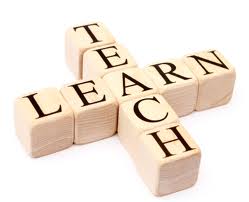Sponsored Links
Teaching Performance: Let's Evaluate
 There are several ways you may get feedback about your teaching:
There are several ways you may get feedback about your teaching:
Through your Students
It is advantageous to collect feedback from students part-way through the term because it allows immediate adjustments in response to students’ difficulties or suggestions and it allows the students who made the suggestions to benefit from the adjustments.
One-minute paper
The one - minute paper is a simple exercise, not incompatible with formal departmental lecture questionnaires. It can be used in lectures or classes and students should readily understand that different concerns are addressed by the different feedback methods.
Quiz / Examination
In a risk-free climate, ask students to complete a quiz on their learning—for the purposes of determining not only their success in learning, but also your success in teaching, as well as clarifying for the students what are the key topics.
Focus Group
Select a representative group from the class to assist you in an informal discussion of the way the class is progressing. Communication may be online or face-to-face. In this way, the group will be able to identify the over all performance of the teacher and will discuss directly to the involve.
Peer / Colleagues Evaluation
Peer evaluation often means teaching observation, either mutual or one-way. Ask a trusted colleague who may have taught your course, or others, to come and observe you. Meet ahead of time to determine the areas of comment and evaluation, and offer a worksheet or template for observation. You may for example, want feedback on your timing, and on your use of interactive questioning techniques, and this should be the focus of the observation and analysis process.

Self-Evaluation
Traditionally academics learn to teach in universities through practical experience rather than from being formally taught how to teach. To avoid this being a 'sink or swim' experience, with either outcome being equally likely, the use of reflective practice to make sense of what happens can be vital. Most people reflect instinctively to a certain extent on what happens to them; however, by doing so more actively and systematically the trajectory of your development as a teacher can become more considered and strategic.
About the author:
Rebecca Mauhay Nunesca a Professional Industrial Engineer and an ASEAN Engineer, currently connected at Batangas State University as Faculty Staff in the IE Department. She is presently enrolled at Rizal Technological University taking MS Engineering Education major in Industrial Engineering.





Add new comment